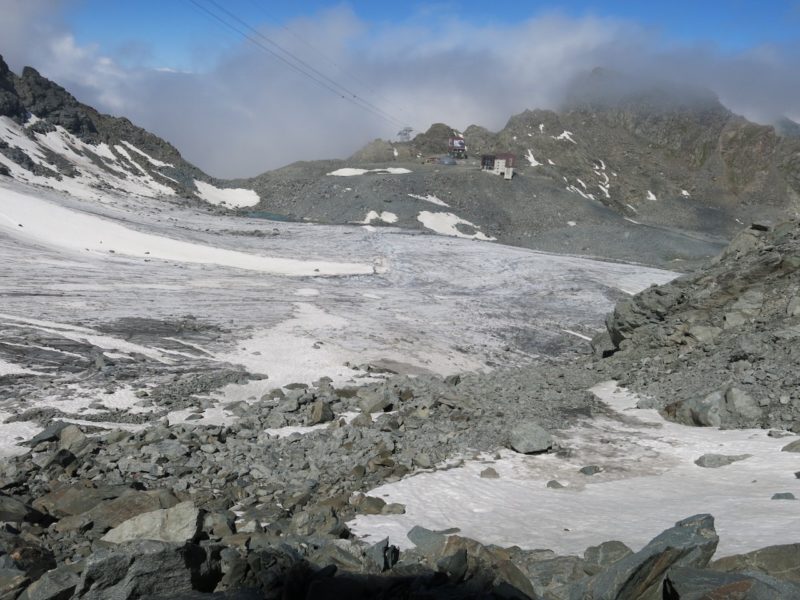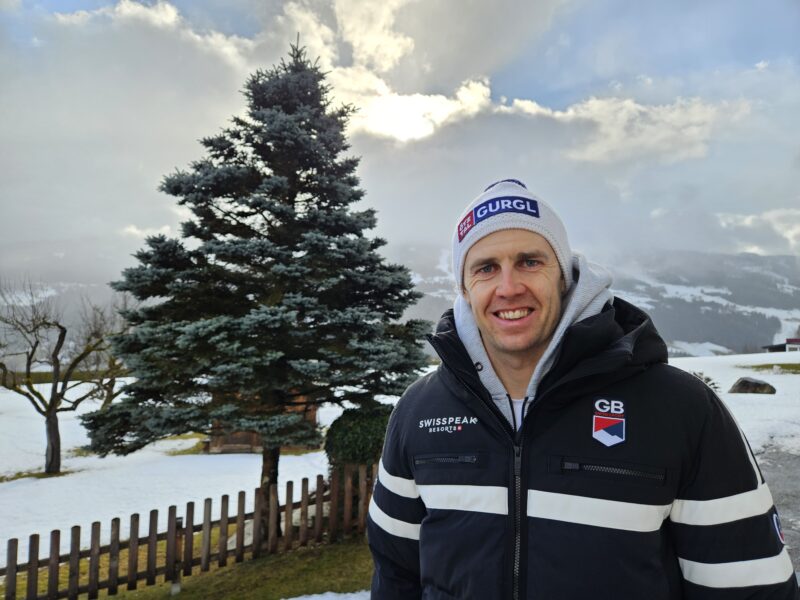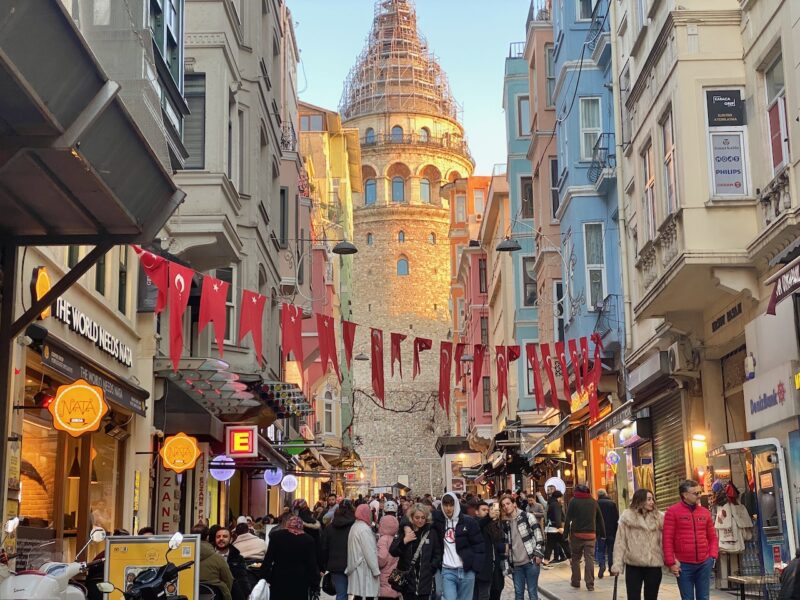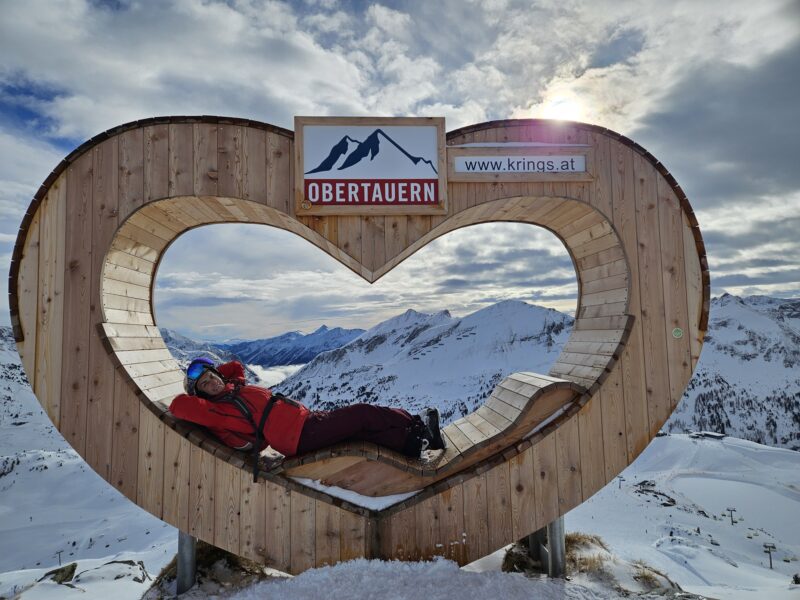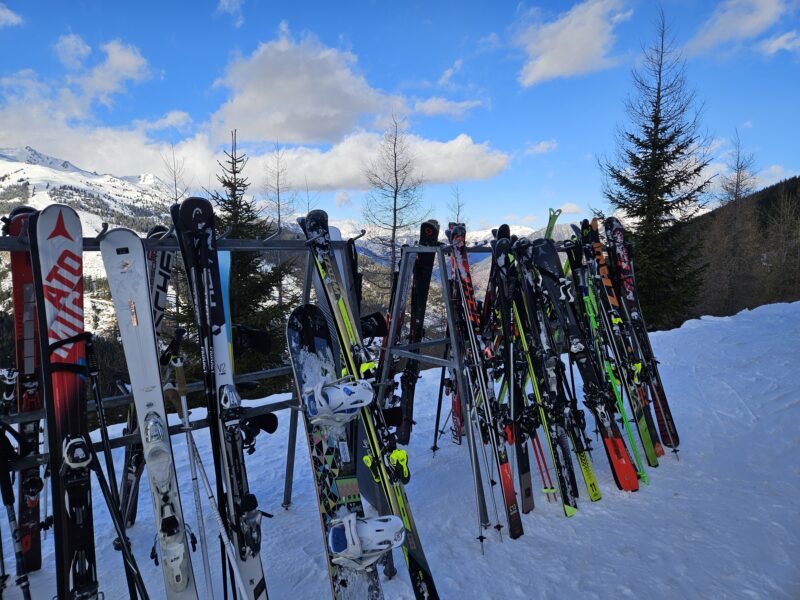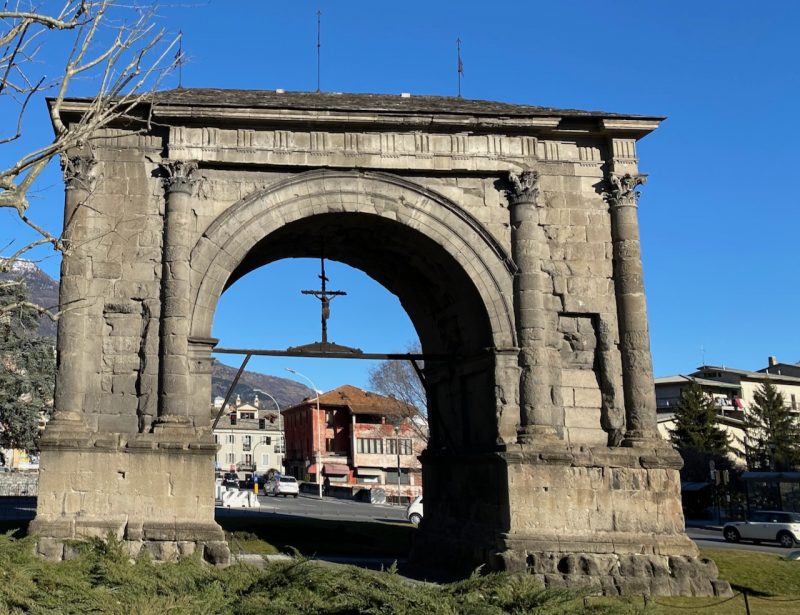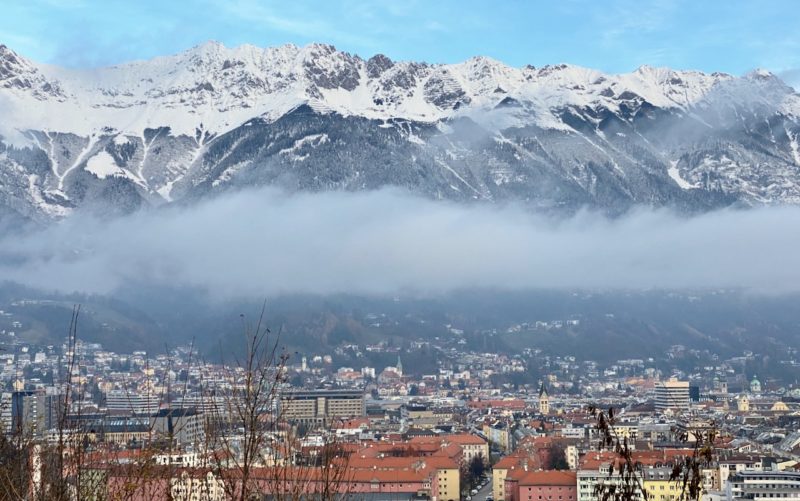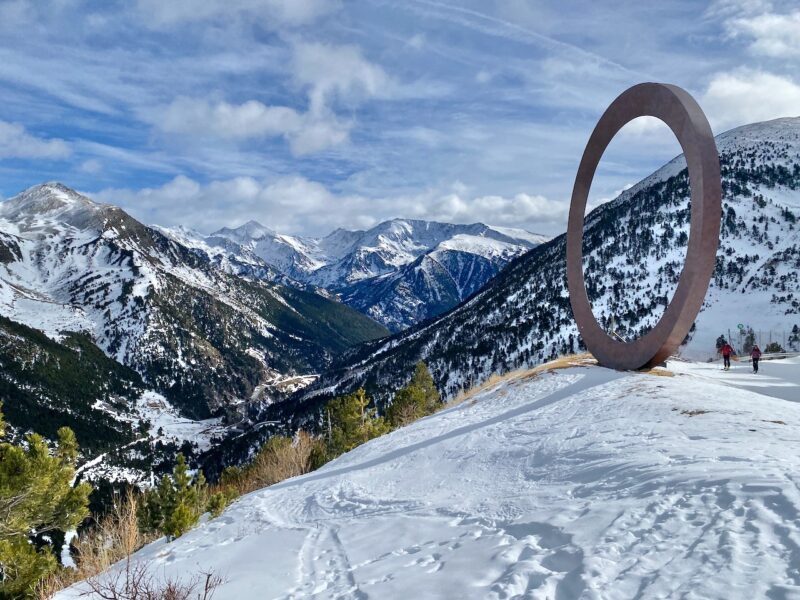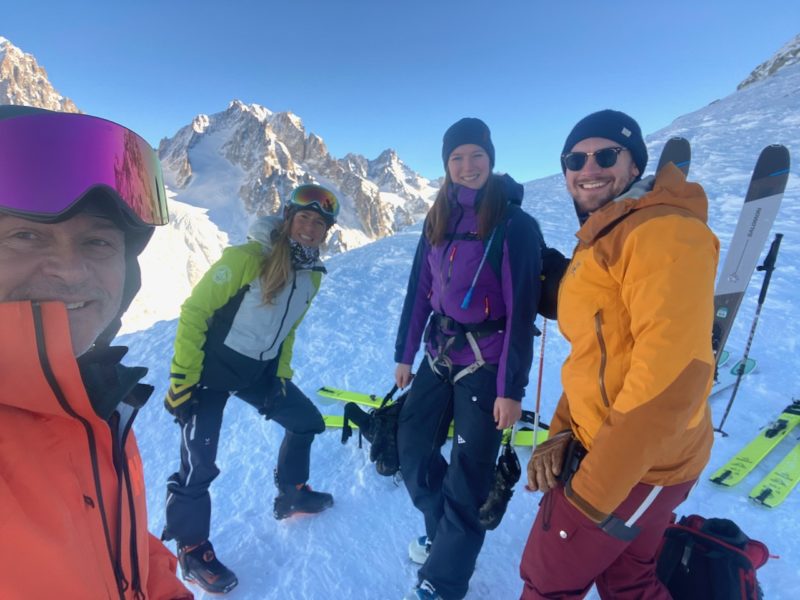Sustainable Ski Holidays in the Tirol
1st December 2022
Last modified on December 7th, 2022
From public transport to environmentally friendly accommodation, regional produce to winter activities with a small carbon footprint – the Tirol claims to have plenty of options for skiers keen to enjoy the Austrian Alps while at the same time helping protect the planet.
Environmentally friendly travel options to your destination
Trains are a great way to travel in comfort and style without having to worry about traffic jams – or your carbon footprint.
Tirol has been promoting rail travel for many years and offers guests day and night connections direct from Germany, Austria, the Netherlands, Italy, Sweden, Denmark and Switzerland.
It is not so easy from the UK but here at PlanetSKI we have arrived in the Tirol by train.

Alpen Express to the Tirol. Image © PlanetSKI.
Once in Tirol, the bahnhofshuttle.tirol transports guests from the main railway stations directly to their accommodation.
Tirol also has an excellent network of buses and local trains operated by the Verkehrsverbund Tirol (VVT), giving people quick and easy access to even the most remote resorts.
Almost all regions in Tirol also offer winter guest cards which can be used on both local buses as well as ski buses in the region free of charge.
Detailed information on travelling to Tirol and getting around while you are here can be found at www.tyrol.com/by-train

Travel sustainably on winter vacation © Tirol Werbung, Johann Kapferer
Sustainable accommodation in Tirol
Fresh produce from the farm next door, stylish decor made by regional craftsmen, natural care products in your room – more and more hotels and accommodation providers in Tirol are committed to sustainable tourism, with many holders of the Austrian Eco-Label.
A good example is the Leutascherhof near Seefeld.
This four-star hotel was recently certified as one of the first climate-neutral hotels in Tirol – recognition of years of effort in many different areas.
The hotel has been a certified organic hotel since 2008 and since then has also been addressing the issue of CO2 reduction wherever possible.
It is one of several organic hotels in Tirol with a long-standing commitment to sustainability.
These hotels use regional products in the kitchen and also offer vegetarian and vegan cuisine.
The rooms are decorated using natural materials and electricity comes from renewable sources.
Many of these hotels are family-run.

Leutascherhof near Seefeld © Biohotel Leutascher Hof
Another major sustainability project is Bewusst Tirol.
This brings together numerous hotels and businesses committed to promoting the use of local food and produce in Tirol’s hotels and restaurants, thereby strengthening cooperation between tourism and farmers.
Visitors keen to get back to nature can enjoy a holiday on the farm as part of the Urlaub am Bauernhof initiative, where organic farms in particular focus on regional and sustainable produce.
Members of the Alpine Hosts group offer breakfasts using regional ingredients only.
Regional food made using local ingredients can be found at the restaurants and inns brought together under the label Tiroler Wirtshäuser.
Each individual guest visiting Tirol can also make their own valuable contribution:
- Using electricity and water responsibly,
- Eating food consciously
- Foregoing daily towel changes and room cleaning
Sustainable skiing which respects the environment
Ski resorts and lift facilities are increasingly committed to sustainability in winter tourism.
Tirolean cable car companies invest considerably in the modernisation of facilities and in the use of renewable energy every year.
A best-practice example in terms of sustainability is the Serfaus-Fiss-Ladis ski resort, where a sustainability coordinator was named several months ago to work on making the ski area and its infrastructure even more environmentally friendly.
Innovations include the fact that many restaurants in the ski resort are now powered by solar energy, with almost zero use of fossil fuels.
In the Leithe Wirt restaurant, for example, there is a custom heat pump for supplying both heating for the building and cooling for the refrigerators.
Restaurants in the resort have also been working closely with local farmers for years, meaning much of the meat and cheese on the menu comes from alpine pastures around Serfaus-Fiss-Ladis.
The village of Serfaus has also completely banned cars from the centre of the village.
Drivers must park on the edge of the village and take a mini underground train into the centre.
Last winter PlanetSKI visited the Ski Welt for an in-depth look at its sustainability initiatives:

Ski Welt, Tirol, Austria. Image © PlanetSKI
In 2021 the Kaunertal Valley became the first Austrian destination to receive the Best Tourism Village by UNWTO award in recognition of its long-standing commitment to sustainable and future-oriented tourism.
Some impressive initiatives have already been implemented for the winter season, with more planned for the future.
One project is the Weißseejochbahn cable car, which uses 100% green energy generated by hydropower and a solar panels is integrated into the building.
Another solar-panel system has also been built at the bottom station of the Karlesjochbahn cable car.
In addition, the most resource-efficient piste grooming equipment on the market is currently being tested in order to prepare the slopes each evening in the most environmentally sustainable way possible.
There is also a collaboration taking place with the University of Innsbruck and other glacier ski resorts to find greener alternatives to the plastic sheeting used to cover and protect artificial snow made ahead of the ski season.
The overarching goal of these and many other initiatives in the Kaunertal Valley is to make this ski area 100% energy independent using its own sources of green energy.
The Pitztal Valley has also seen many projects and initiatives in recent years aimed at treating this special and sensitive habitat with the utmost care.
Efforts are made to use the natural snow on the glacier as efficiently as possible. One third of electricity used on the glacier is generated by a photovoltaic system.

photovoltaic system on the Pitztal glacier © Julia Brunner
Finally, the resort of See in the Paznaun Valley is also setting a good example.
For several years now this ski area has been using snow-making equipment that produces clean green electricity – four times as much they use themselves.
Explore the winter landscape on foot
Winter in Tirol claims to be sustainable and environmentally friendly, especially far away from pistes and lifts.
- Snowshoeing through snow-covered forests
- Winter hiking to lonely vantage points
- Tobogganing with friends and family
PlanetSKI was based in the Tirol for part of last winter and we headed out on cross-country skis.
Sometimes with success.
Other times less so.

Nordic skiing at Leutasch, Tirol. Image © PlanetSKI

Nordic skiing at Leutasch, Tirol. Image © PlanetSKI
Many Tirolean regions have deliberately specialised in gentle winter tourism and offer guests a wide range outdoor activities without the hustle, bustle and noise associated with large ski resorts.
Among the most popular are visits to Tirol’s nature parks and the Hohe Tauern National Park, where guests can take part in guided tours with local rangers giving fascinating insights into the flora and fauna of the region.
The best tips for regions and tours that invite you to enjoy gentle winter sports in the snowy mountains of Tyrol can be found at www.tirol.at/winterurlaub
Initiatives a sustainable tourism industry
Sustainability initiatives are not only to be found in Tirol’s ski resorts – and not only for guests.
Employee initiatives have also become an important tool for developing the tourism industry sustainably and leading it into the future.
Best practice examples include the Kaiserschaft project in the Wilder Kaiser region and the Job-Life Achensee initiative created by the villages around Lake Achensee, Tirol’s largest lake.
Further information on sustainable holidays in Tirol can be found at www.tyrol.com/ecotirol.

PlanetSKI logo

